Sacrifices Read online
Page 3
***
He's in Athens. It really is as impressive as Kallisthenes told him it would be. The massive walls of the Acropolis, honey-coloured, bare, above the plain; in the distance, the hill of Lykabettos, a cone of dark green foliage and crumbling rock. The path winding up the flank of the Acropolis to the narrow gates, lined with relics; tripods, pillars, records of Olympic victors, spoils of war - helmets, shields, breastplates - sphinxes, horses, kouroi, lions. Kallisthenes reads him some of the inscriptions; gods damn it, one of the helmets is older than the foundations of Cisra, the bronze thin as lace where wind and rain had eaten it away.
Then they go up the steps through the three gates, through a stair between great rock walls, so narrow it is sunless and cold despite the fine weather, and out to the airy plateau where the sky is so big and close he feels lost for a moment, till Kallisthenes' hand finds his. There before them is the temple of Athena, austerely Doric, the columns' fluting sharp in the clear light.
They go inside. It is dark, except where the light from the open doors slashes across the floor. It is a massive space; he can tell that by the echo, before his eyes adjust to the hushed darkness. The only sound is the slither of feet on the marble floor.
"The goddess," Kallisthenes whispers, and he realises that the massive tree trunk he is looking at is actually a statue. Two small, high, round breasts; a long, thin nose; that's all the humanity that has been grafted on to the olivewood, dark with age as if it had been singed in the fire. He shivers. It's cold out of the sun, he thinks, but he knows that's not what had set his flesh to prickling.
Later, lying on Kallisthenes' couch in that golden light of the hour before sunset, he twisted his fingers in his friend's dreadlocks, and wonders if all foreign cities are so surprising. Kallisthenes has an image of the goddess here, but she's not the fearsome black thing he saw this afternoon in the temple; she's a smug and slightly plump young woman in white-painted clay, decorated with bands of bright pink, purple and turquoise. You can't imagine her defending the city, and Karkana is quite glad that that is the case. You could give this goddess flowers, and she would smile on you; the other one, he thinks, wants blood.
Kallisthenes turns, and taking Karkana's hand in his, turns it over and kisses the palm.
"You're thoughtful tonight," he says.
Karkana doesn't reply; he twitches one side of his mouth, a sort of half-smile he uses sometimes when a sales pitch gets too much.
"Tired? I'll leave you, if you are. Athens can be an exhausting city."
"No, no," he says, suddenly ashamed of putting Kallisthenes off; "don't go. We won't have much time to talk tomorrow; I have three workshops to visit, and orders to make."
"You'll need a bath when you come back. Covered in clay dust, you filthy Etruscan."
Karkana swipes his friend playfully, finds his ribs unprotected, and tickles him till he laughs, and yells "Enough!" It's an old joke - the day they met, Karkana had been unloading a boat, and slipped in the mud of the lagoon - that is becoming a part of their friendship, part of the ties that bind them together, and suddenly, Karkana is reminded of the way his parents still quarrel over that amber brooch. He grins.
"What's that about?" Kallisthenes asks.
"Thinking of my parents."
Kallisthenes' eyes seem to harden. "I wish I'd known mine."
That surprises Karkana. He knows Kallisthenes lives on his own, with only three or four servants in the household, but that's not so unusual for a man of his age. His surprise is obvious to Kallisthenes, who answers the question Karkana hasn't had to ask.
"I grew up with my uncle and aunt - my father's sister; they were all the family I had. Mother died of a fever a week after I was born."
"And your father?"
"My father was killed after Alalia," he says.
"At Alalia, do you mean?" Karkanas wonders for a moment whether his Greek is not quite as good as he thinks it is. And he also thinks how little he knows about Kallisthenes; he wonders if their three-month relationship will make it as far as his parents' forty years of marriage.
"No, not at Alalia; after. If I hadn't met you, I would still hate the Etruscans. But then I have to remember, you're from Spina; nothing to do with Alalia."
Karkanas feels the same prickly cold he'd felt in front of the implacable goddess. He remembers that Kallisthenes doesn't know he was born in Cisra, spent his early childhood there.
"Greece lost two thirds of her ships in that battle. Did you know that? The fleet was almost destroyed. The lucky ones, who could jury-rig their boats and stop up the leaks, sailed for Massilia, but the others had to surrender."
Karkanas remembers the prisoners he'd seen that day, so long ago. A hollow-eyed foreigner asking for a cup of water. A little bucchero cup he'd cherished and lost.
"After the battle, they took the Greek prisoners up to the temple."
That was where he'd met the stranger; on the way up from the shore.
"They lined them up against the wall, in chains. In chains, like slaves. And they stoned them to death. Every one."
The evening light had turned to grey dusk while they'd been talking. Karkana realised he could no longer see his friend's eyes, and he was glad.
"How do you know all this?"
"There was a plague in Cisra, five years later. They sent a man to Delphi, to ask the oracle how to atone for their crime. And from Delphi, word came to Athens. We'd been waiting all that time for father to come home."
"My father was in... a battle, once," Karkana said. "I remember asking my mother when he would come back, and never getting an answer. But that was two months, not five years."
He wonders if he was stupid not to have known what was going on. He was only six, maybe seven. And they moved away from Cisra soon after; if they'd stayed, he was sure he would have heard gossip, but in Spina, Alalia was a long way away. And by the time he was old enough, it was a long tine past, too... But then he remembers the way his parents cut certain conversations short when they knew he was listening. He shivers. He remembers the cold in the temple on the Acropolis, and gives it its real name: fear.
***
Karkanas has grown older. He lives with his parents, still; they're growing old, father nearly sixty now but still with that erect bearing of a former warrior, his mother thinned and sharpened by age. He has a wife now, a potter from Felsina who shares his love of Exekias and his bed, and sometimes forgets to wash the red smudges of clay off her face before sitting down to dinner.
He thinks sometimes of Kallisthenes. That was only a year ago, but he is so much older now. He thinks of a little bucchero cup. He could get his wife to make him one just like it, but that's not the point.
Before he left Athens, Kallisthenes told him one other thing. The vote had hung in the balance, he said; some wanted the prisoners sold. Others wanted them dead. It was down to one man to vote; and he voted for death. Then Kallisthenes said a name.
Karkanas knows now why they left Cisra in such haste. He knows what happened to his bucchero cup, to the man who held it. And he knows now that he, like Kallisthenes, is an orphan; that in every way that matters, his father never really came home.

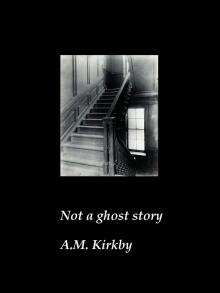 Not a Ghost Story
Not a Ghost Story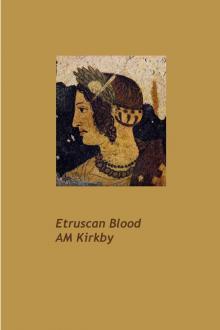 Etruscan Blood
Etruscan Blood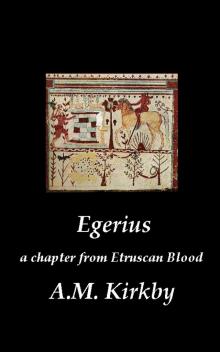 Egerius
Egerius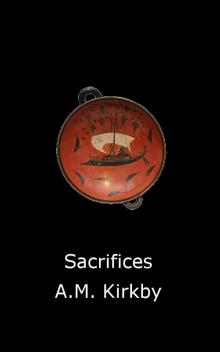 Sacrifices
Sacrifices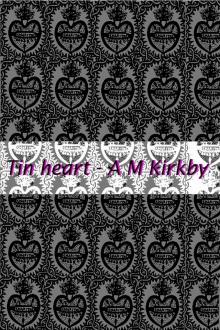 The Tin Heart
The Tin Heart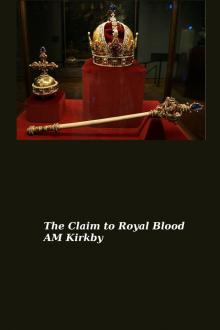 The Claim to Royal Blood
The Claim to Royal Blood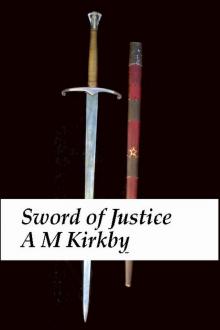 Sword of Justice
Sword of Justice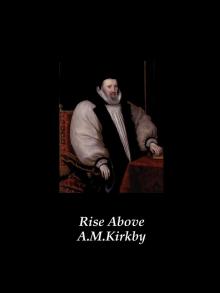 Rise Above
Rise Above